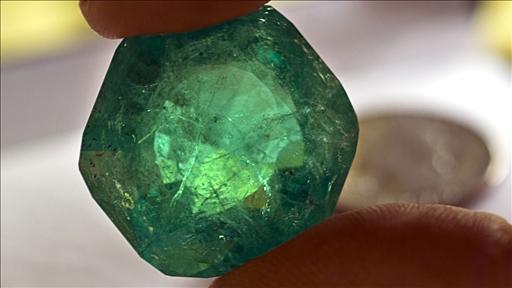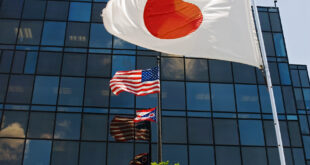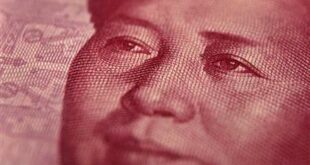The United States updated sanctions on Myanmar on Wednesday to maintain a ban on importing rubies and jade amid a relaxation of curbs on U.S. trade with the Southeast Asian nation, American officials said.
President Barack Obama’s executive order continues a gradual lifting of sanctions since the military government that had run the country also known as Burma for five decades stepped aside in 2011.
“The administration is maintaining restrictions on specific activities and actors that contribute to human rights abuses or undermine Burma’s democratic reform process,” deputy national security adviser Ben Rhodes said in a statement.
The U.S. ban on imports of Myanmar jade and rubies remains in place because of concerns that the mining of those gems benefits military figures and shadowy businessmen and fuels corruption and human rights abuses in ethnic minority regions.
Without Wednesday’s adjustment, the ban on rubies, jade and jewelry that contains them would have lapsed with the expiry on July 28 of a general import ban under legislation known as the Burma Freedom and Democracy Act.
Wednesday’s move also paves the way for the lifting of prohibitions on U.S. dealings with some people or entities in Myanmar on the Specially Designated Nationals (SDN) blacklist maintained by the Treasury Department.
Lifting the ban on U.S. interactions with such people or companies still requires a license from Treasury, a second U.S. official said. Myanmar‘s list includes military figures accused of rights abuses and corruption under the former ruling junta.
Human rights activists and ethnic minority groups remain wary about the government of President Thein Sein, a former general now heading a quasi-civilian government in Myanmar, and they lobbied vigorously to keep some sanctions in place.
“We are strongly opposed to removing anyone from the SDN list who has not demonstrated they have cut ties with the Burmese military, military-owned businesses and returned confiscated land,” said Jennifer Quigley, executive director of the U.S. Campaign for Burma, a Washington advocacy group.
In a letter to Obama last month, 30 groups from Kachin state, where much of the jade is mined, warned that an easing of the ban would worsen a conflict over resources that has raged since a ceasefire broke down in 2011.
“The prospect of huge profits to be made could encourage increased militarization and even fresh conflict as government forces seek to secure control of areas where mines are or where deposits may be,” said the groups from Kachin, a state that borders China.
World Bulletin
 Asia Finance News Asia finance news, banking, market analysis, business, Forex, trade, Cryptocurrency as it is happening in Asia. Trusted gateway for Asian financial news.
Asia Finance News Asia finance news, banking, market analysis, business, Forex, trade, Cryptocurrency as it is happening in Asia. Trusted gateway for Asian financial news.





